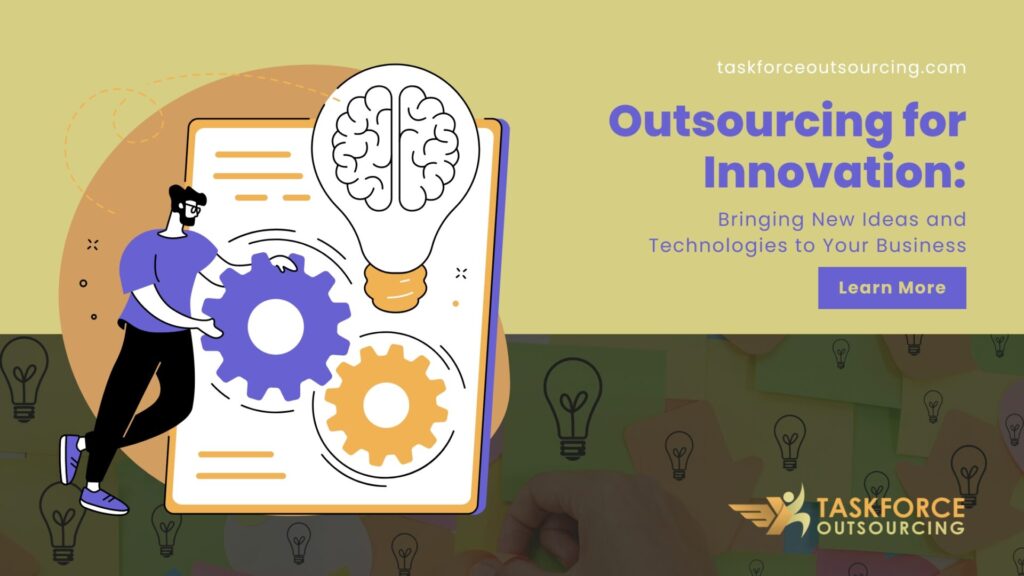Innovation is the lifeblood of any successful business. It’s what drives growth, opens new markets, and keeps customers engaged. Yet, achieving innovation is no small feat. It requires not only creative thinking but also the resources and technological know-how to bring ideas to life. For businesses looking to fuel their innovation efforts without overextending their internal teams, outsourcing offers a strategic advantage. By partnering with specialised providers, businesses can inject fresh perspectives and new technologies into their operations, making innovation a tangible reality.
Contents
The Role of Innovation in Business Success
Innovation is the cornerstone of business success and growth. It involves the creation and application of new ideas, products, services, or processes that add value to your company. In an increasingly competitive market, companies must continuously innovate to meet evolving customer needs, adapt to technological advancements, and capitalise on emerging trends.
Businesses that prioritise innovation can gain significant competitive advantages, including increased market share, enhanced customer satisfaction, and improved operational efficiency. However, fostering innovation internally can be challenging due to limited resources, expertise, and time constraints. This is where outsourcing comes into play as a valuable strategy to accelerate innovation.
How Outsourcing Fuels Innovation
Innovation is the key to staying competitive and driving growth. However, innovation requires time, resources, and focus. This is where outsourcing comes into play as a powerful strategy for fueling innovation. By strategically delegating certain tasks to external experts, companies can free up internal resources to concentrate on what they do best: innovating.

Freeing Up Internal Resources for Innovation
One of the primary benefits of outsourcing is the ability to free up valuable time and resources. When businesses delegate routine, time-consuming tasks, they create more room for their teams to focus on high-impact projects. This shift allows internal teams to direct their energy toward brainstorming new ideas, developing innovative products, and refining their business strategies.
Access to Specialised Expertise
Outsourcing also provides businesses with access to specialised expertise that may not be available in-house. Whether it's advanced data analytics, digital marketing, or software development, outsourcing partners bring a wealth of knowledge and experience to the table. This access to specialised skills can significantly enhance a company's ability to innovate.
Enhancing Flexibility and Agility
In today's dynamic market, the ability to adapt quickly to changing conditions is crucial. Outsourcing enhances a company's flexibility and agility by allowing it to scale up or down rapidly based on demand. This flexibility is particularly important for innovation, as it enables businesses to experiment with new ideas and pivot quickly if necessary.
For instance, a company might outsource its customer service function during a product launch to ensure that its internal team can focus on managing the launch itself. If the product proves successful, the company can then scale up its operations to meet increased demand, all without being tied down by the need to hire and train additional staff. This level of agility is essential for businesses looking to innovate and grow in a competitive market.
If you’re interested in exploring how outsourcing can help your business stay agile and responsive to change, be sure to check out our blog on Staying Agile: How Outsourcing Supports Business Adaptation and Change.
Cost-Effective Innovation
Innovation often requires significant investment, but outsourcing can help companies achieve more with less. By outsourcing certain functions, businesses can reduce overhead costs, such as salaries, benefits, and infrastructure expenses. This cost savings can then be reinvested into innovation projects, such as R&D, marketing campaigns, or product development.
Leveraging Outsourcing for Technological Innovation
Technological innovation is a critical component of modern business success. From automation to artificial intelligence (AI), new technologies can transform the way businesses operate. However, staying on the cutting edge of technology requires continuous investment and expertise, which can be challenging for many businesses. Outsourcing offers a solution by providing access to the latest technologies and the expertise needed to implement them effectively.
Implementing Outsourcing for Innovation: Best Practices
To ensure successful implementation of outsourcing for innovation, consider the following best practices:
Start with a Pilot Project
This allows you to assess the capabilities and performance of potential partners on a smaller scale. Use the pilot project as an opportunity to evaluate work quality, communication skills, and alignment with your innovation goals.
Establish Clear Objectives and Deliverables
Clearly define the objectives, deliverables, and timelines for your outsourcing projects. Providing detailed project briefs and expectations will help ensure that your outsourcing partners understand your requirements and can deliver results that meet your standards.
Build Strong Relationships
Invest time in building strong relationships with your outsourcing partners. Regularly engage with them, provide constructive feedback, and recognize their contributions. A positive working relationship fosters collaboration, trust, and a shared commitment to achieving innovation goals.
Monitor Performance and Measure Results
Continuously monitor the performance of your outsourcing partners and measure the results of their contributions. Use key performance indicators (KPIs) to evaluate their effectiveness in driving innovation and delivering value. Regular performance reviews will help identify areas for improvement and ensure that your outsourcing strategy remains aligned with your business objectives.
Conclusion
Outsourcing for innovation offers a strategic advantage for businesses looking to stay competitive and drive growth in a rapidly evolving market. By leveraging external expertise and resources, companies can access specialised skills, reduce costs, accelerate time-to-market, and enhance their focus on core competencies. However, successful outsourcing for innovation requires careful selection of partners, clear communication, and effective management.
Frequently Asked Questions (FAQs)
A: Small businesses can greatly benefit from outsourcing for innovation, as it allows them to access high-quality expertise and advanced technologies without the need for large investments.
A: To ensure alignment, start by clearly defining your innovation goals and expectations. Communicate these objectives to your outsourcing partner and establish a shared understanding of the desired outcomes. Regular communication, performance monitoring, and setting key performance indicators (KPIs) will help maintain alignment and ensure that the outsourcing partnership drives the intended innovation.
A: These can be mitigated by selecting reputable partners, establishing clear contracts, and implementing strict quality control and security measures. Regular communication and performance monitoring are key to ensuring that the quality and security of your projects are maintained.
A: Outsourcing can positively impact a company’s culture of innovation by introducing new ideas, perspectives, and approaches that can inspire internal teams. It allows employees to focus on core activities and strategic thinking, which can foster a more innovative environment. However, it's important to ensure that the internal team remains engaged and that outsourcing complements.
A: The long-term benefits of outsourcing for innovation include sustained competitive advantage, access to ongoing technological advancements, and the ability to adapt quickly to market changes. It also enables companies to build lasting relationships with external experts, creating a network of innovation partners who can support future growth and development.

As you explore outsourcing opportunities, remember that innovation is a continuous journey. Embrace the potential of outsourcing to bring new ideas and technologies to your business, and stay agile in adapting to the ever-changing business landscape. With the right strategy and partners in place, outsourcing can be a powerful catalyst for driving innovation and achieving long-term success.

